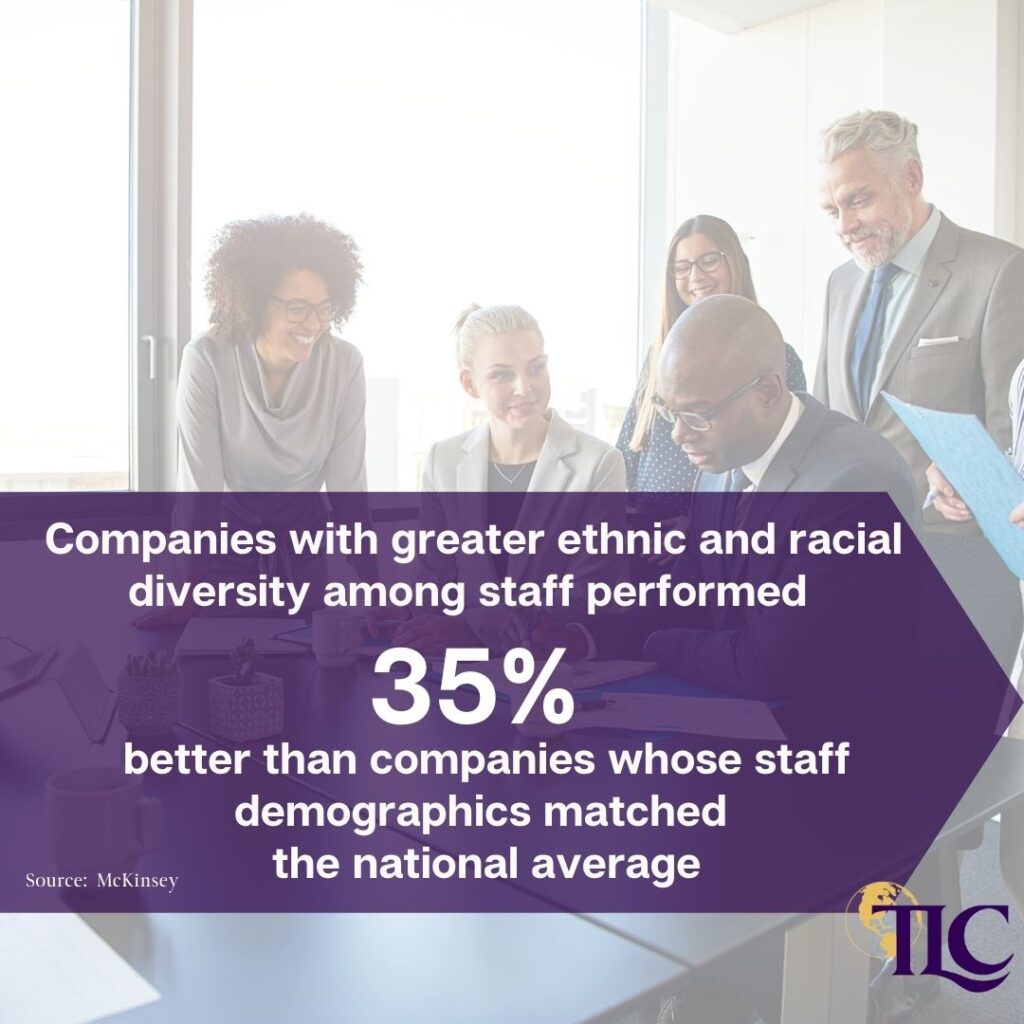Building a Diversity, Equity & Inclusion Strategy That Works
Uncategorized | Sep 13, 2021

Forging a more equitable and inclusive workplace has never been more important than now.
Social and political discourse around equality has intensified in recent years. Growing public pressure and widespread activism have pushed the issue of workplace disparity front and center. Many organizations are scrambling to assemble diversity, inclusion, equity initiatives in response to recent events and realizations that there are gaps in their current culture.
Diversity, or increasing representation of people from various backgrounds, perspectives, and experiences; is only part of the equation. Inclusion, or making space for and amplifying the voices of everyone in the workplace, equally, is another. Many forward-leaning organizations are also focusing on equity, which means that employees have equal access to opportunities and the support to succeed and grow, as part of their overall DEI strategy.
In 2015, McKinsey published a study entitled “Why diversity matters,” which found a strong correlation between diversity and financial performance. Data from this study showed that companies with greater ethnic and racial diversity among staff performed 35% better than companies whose staff demographics matched the national average. Furthermore, companies with greater gender diversity performed 15% better than companies with less gender diversity.

Beyond the business sense of why DEI is an important component of the overall health of an organization, implementing and maintaining an effective DEI strategy is simply the right thing to do.
A DEI strategy is most effective when embedded within the culture of an organization and commitment to improving starts from the top down. Senior leadership must wholeheartedly buy-in to creating a fair workplace and take a conscious, actionable, and measurable approach to foster an environment of equity and inclusion. So where is the starting point for leaders when considering their organization’s DEI practices? While there is no “one-size-fits-all” answer to this, oftentimes organizations turn to DEI consultants to evaluate their current culture and where the gaps, liabilities, or other challenges may lie.
How to start an impactful DEI Program
- Measure and benchmark the diversity of your current workforce
- Identify areas of concern and develop objectives such as:
- Resistance to change
- Leadership support
- Diverse representation
- Biased hiring practices
- Develop and implement DEI training based on the gaps identified
- Socialize and communicate initiatives
- Measure and communicate results which can include:
- Diversity percentage in leadership
- Retention
- Program engagement
- Employee feedback
Having a benchmark and an unbiased viewpoint of where your organization’s “DEI Health” stands is critical for focusing on areas that will have the most impact. By identifying areas of concern, consultants make recommendations to develop objectives to address those concerns and then help to create the most effective strategy. Within that strategy, it is key to layout deliverables and how results will be measured. Diversity, equity, and inclusion training helps employees at all levels and in all departments to better work with colleagues of differing identities and backgrounds. It aims to build awareness and skills which support marginalized employees and help to cultivate a safe, compassionate and equitable office culture where everyone feels valued. DEI training also allows employees to discover similar priorities, values, and goals within their colleagues and gets everyone on the same path forward, working together to foster a culture of inclusivity.

Coaching for Diverse Employees
One component that is important to consider when developing your organization’s culture and DEI strategy, is the individual development of high potential leaders. The unique nature of coaching can help elevate the capabilities and leadership potential of underrepresented employees, who often experience unique challenges in the workplace. Employees of color, women and LGBTQ employees can experience an “emotional tax” in the form of a heightened sense of guardedness against bias, in addition to managing everyday organizational stresses. In addition, underrepresented employees often face challenges related to trust, inclusion and job satisfaction that can have a negative effect on their emotional well-being. These issues also put them at risk for becoming disengaged or even deciding to leave the organization.
Still not sure where to start?
TLC has a team of consultants uniquely qualified in DEI to address and mitigate current challenges. They understand what is at stake and their expertise lends itself to a holistic approach that introduces tools and effective strategies to improve your organization’s culture and your employees’ ability to succeed and thrive. Let us know how we can help.
Subscribe to our Newsletter:
Receive leadership and professional development insights straight to your inbox
How can we support your success?
We’d love to get to know you and learn more about your organization’s leadership development initiatives.

